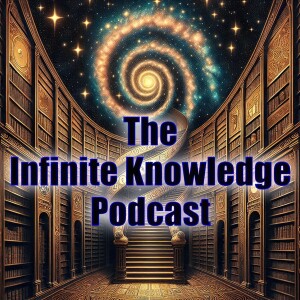Wednesday Oct 23, 2024
The Golden Rule, from east to west: a uniting principle for positive cause and effect. Love to be loved. Give to be given

In this audio essay episode, the Golden Rule is presented as a universal maxim that transcends cultures and philosophies, suggesting that individuals should treat others as they themselves would like to be treated. The Golden Rule is exemplified across various religious texts, including Jewish, Christian, Confucian, Hindu, and Buddhist teachings, all of which advocate for reciprocity and empathetic conduct toward others. This timeless principle is further supported by psychological theories such as social exchange, the concept of reciprocal altruism in evolutionary biology, and strategies within economic game theory, illustrating its widespread influence as both a moral and practical guide for interpersonal and societal harmony. The audio essay also explores practical applications of the Golden Rule, such as awareness, empathy, and reflection, and the integration of these behaviors into social norms and economic transactions, highlighting the alignment of individual morals with collective societal needs through additional practices like norm internalization, risk-sharing, and information equity.
The audio essay delves into the Golden Rule's relationship with the concepts of reciprocal love and generosity, emphasizing the importance of these principles in creating interconnected, harmonious societies. The essay discusses how the Golden Rule resonates with teachings such as those of Jesus and Confucius, providing a moral compass across different cultures and eras. Scientific principles, including the functions of mirror neurons and the law of karma, support the idea that positive actions have a recursive impact on our lives. Philosophical and economic parallels, such as Kant's categorical imperative and Adam Smith's 'Invisible Hand,' also reflect the rule's significance, and sociology's idea of social capital reveals how empathy and cooperation enhance communal life. Practical advice for integrating reciprocal love and generosity into daily life is offered, and the essay concludes by affirming the power of 'Give to be Given' as a principle for collective well-being and prosperity.
Comments (0)
To leave or reply to comments, please download free Podbean or
No Comments
To leave or reply to comments,
please download free Podbean App.